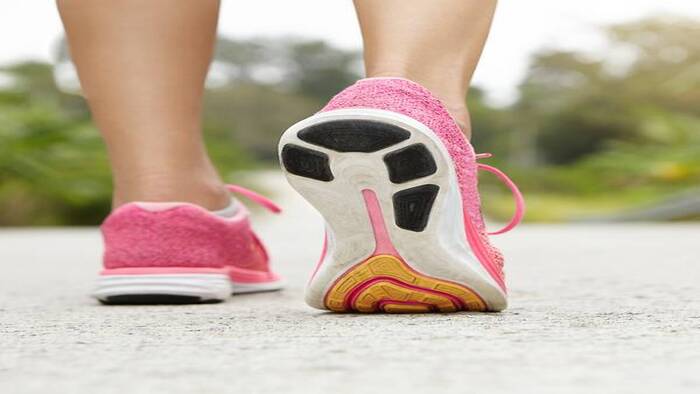FEB 7, 2021
"Exercising on a regular basis may act as a cognitive enhancer promoting creativity in inexpensive and healthy ways," accprding to study researcher Lorenza Colzato, a cognitive psychology at Leiden University in the Netherlands.

If you often exercise, there's a good chance you also tend to be more creative, according to an interesting new study of the links between physical activity and imagination.
A study finds that active people come up with more and better ideas during tests of their inventiveness than people who are relatively sedentary, and suggests that if we wish to be more innovative, we might also want to be movers and shakers.
Science already offers plenty of evidence that physical activity influences how we think. Many studies in people and animals show that our brains change in response to physical activity, in part because during exercise we marinate our brains with extra blood, oxygen and nutrients.
In rodent studies, animals that regularly exercise produce far more new brain cells than their sedentary counterparts and perform better on thinking tests, even if they are elderly. In people, too, exercise tends to sharpen our abilities to reason and remember and buoys our moods.
But creativity is one of the most abstract of thinking skills and difficult to quantify, and its relationship with exercise has not been clear. A few past studies have found intriguing relationships between moving and originality.
In one notable 2012 experiment, for instance, researchers asked some of their volunteers to move their arms loosely and fluidly through space, tracing the lines of a looping, curvy line-drawing the scientists had shown them, while another group arm-aped a straighter, more angular drawing.
After each session, the researchers urged the volunteers to dream up novel, unexpected uses for an ordinary newspaper and found that those who had moved fluidly, almost as if they were dancing, came up with more original ideas than those whose movements had been rigid, straight and formalised.
Another, more conventional 2014 study of exercise and creativity likewise found that moving can spur innovation. In the main part of that multipart experiment, volunteers sat at a desk in a lackluster office space, trying to imagine new ways to use a button and otherwise engage their imaginations.
They then completed a slightly different test of their creativity while walking on a treadmill in the same uninspiring room. Almost all of the participants spun out ideas that were more numerous and ingenious while walking than sitting.
But those and most other past studies of movement and creativity looked into the short-term effects of physical activity under tightly controlled conditions in labs or similar settings. They did not examine the potential linkages, if any, between everyday activities, like going for a walk, and the workings of our imaginations, or how being active could possibly affect creativity in the first place.
So, for the new study, which was published in Scientific Reports, researchers at the University of Graz in Austria decided to track the normal activities of a group of average adults and also measure their creativity, to see whether and how the two might align.
The scientists wondered, too, about happiness. Some past research had speculated that good moods might be the intermediary linking activity and creativity. According to that idea, moving makes people happier, and their good cheer in turn makes them more creative; in that scenario, moving does not directly affect creative thinking.
To learn more, the researchers gathered 79 healthy adults, gave them activity trackers for five days and then asked them to visit the lab and let their imaginations soar, conceiving new uses for car tyres and umbrellas and finishing partial drawings. The researchers then rated their output on its originality and other measures. The volunteers also completed standard questionnaires about their moods.
Finally, the scientists cross-checked the data, using a complex form of statistical analysis that incorporates findings from related, earlier research (to give the results more statistical heft) and weighs how much of a role a potential mediator plays. In this case, the researchers wondered, did being happy relate closely both to how much people moved and their creativity, meaning it linked the two?
The answer, the researchers concluded, was no. The most active of the volunteers proved to be also the most creative, especially if they often walked or otherwise exercised moderately. Active people also tended to be happy people, although their moods were highest if they engaged in relatively vigorous activities, like jogging or playing sports, rather than moderate ones.
But the correlations between activity, creativity and moods were slight. People could walk often and be quite creative but not especially happy, suggesting that it was not improved moods that most influenced creativity. It was moving.
The findings point to “an association between creativity and physical activity in everyday life,” according to Christian Rominger, a professor of psychology at the University of Graz and the study’s lead author.
The study was associational, though, meaning it looked at a brief moment in people’s lives. It did not involve a randomised experiment and cannot tell us if being more active directly causes us to be more creative, only that activity and creativity are linked.
It also does not explain how exercise and other activities might shape creativity, if not by raising moods, or show whether a brisk walk now helps us better finish a newspaper column or some other creative venture later. But the results do intimate that active imaginations start with active lives.
Source: www.channelnewsasia.com
Share This:
'Learning Activities' - For Skill Development - Also Read all Latest News & Articles
Source: www.channelnewsasia.com